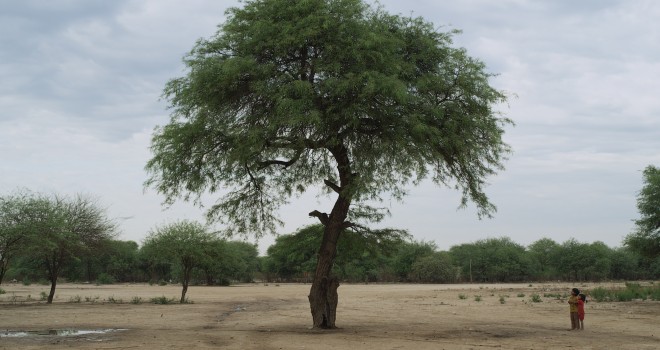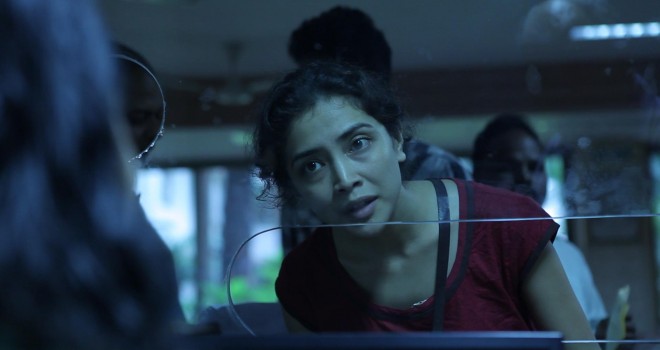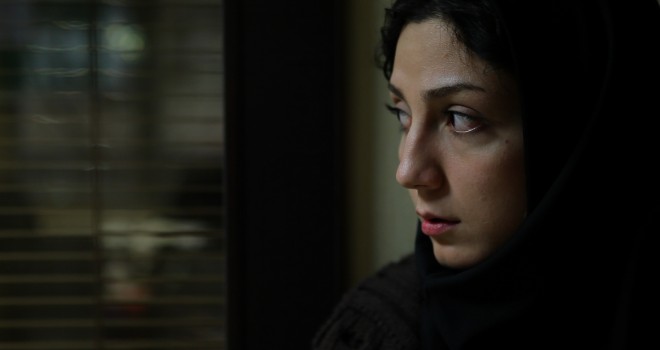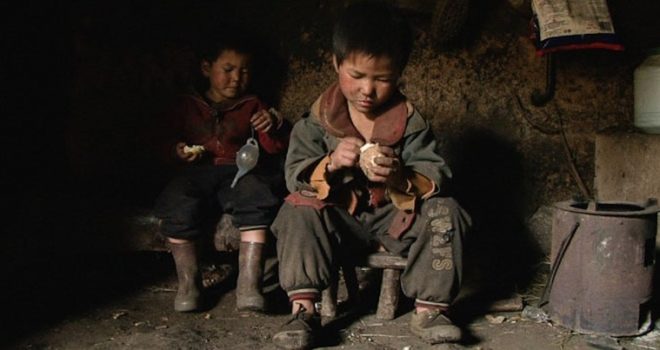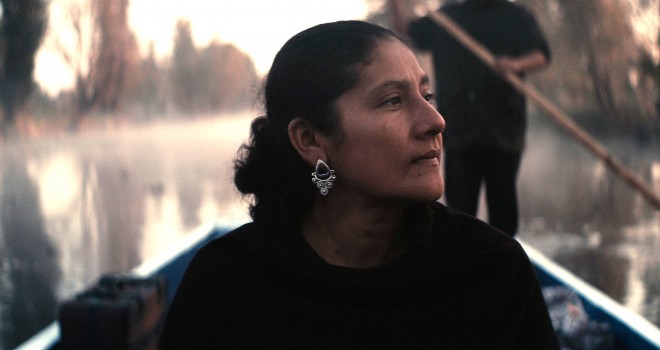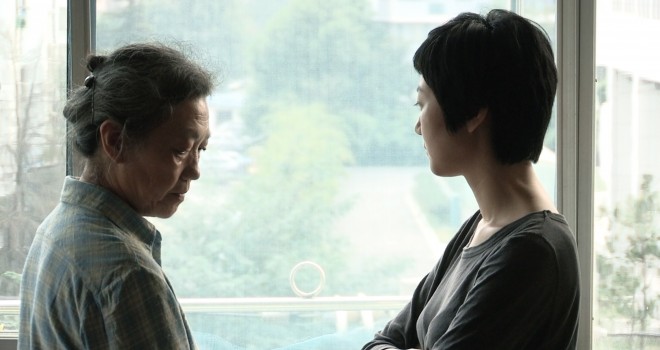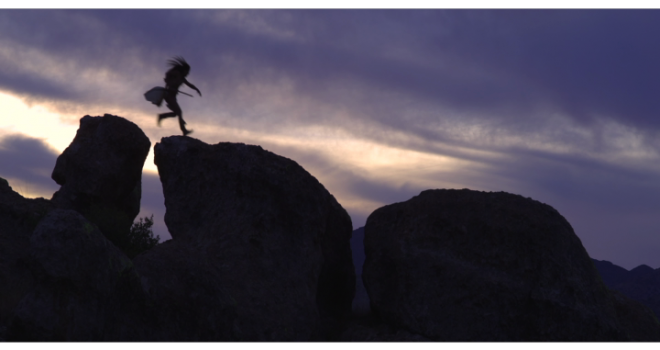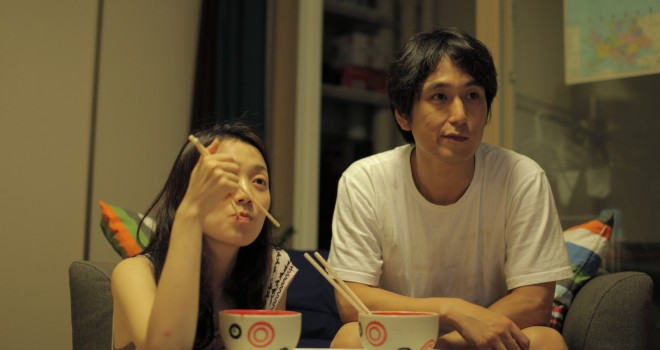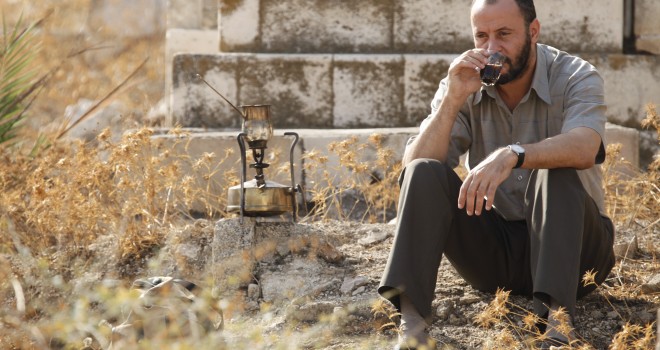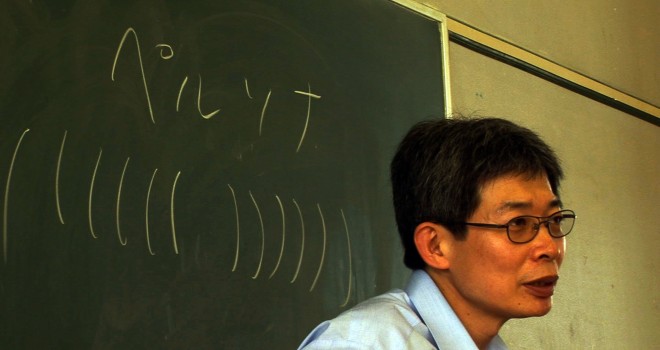Yesterday like today, the social or societal content of the films screened at the 3 Continents has never been at odds with their appetite for fiction or their formal inventiveness. On the contrary, their ability to readjust the viewpoint, vision and mise en scène remains in tune with a changing environment, in a cinema that never limits itself to complacently “reflecting” reality. In our 2012 selection, these two dimensions co-exist in a paradoxical tension. The realities of today’s world are very much present in these technically and aesthetically exacting films and take on highly diverse and equally surprising forms: the glacial architecture of a large Brazilian city revisited through the choral composition of O som ao redor; an echo of the Mexican Indians’ plight in the western, Rio de oro, even though the film is set in the nineteenth century; the life and death of a Chinese operatic tradition recounted through the hero’s love affairs in The Love Songs of Tiedan… Following on from Girimunho, last year’s double award-winner at F3C, we could say that the autobiographical approaches of Le Rite, la Folle et moi and Memories Look at Me or the dreamlike quality of Mai morire encounter an ethnographic vein, also at work in the two Argentinian films, Beauty and Germania. Why so? The question is addressed head-on in the Indian film, I.D., by Kamal K.M; the world seems to split assunder precisely at those points where social structures are put to the test of modernity: the process of acculturation, class relationships, troubled filiation, displaced persons, the difficult of projecting oneself into possible futures…
It must be said that reality also invites itself upstream – and sometimes violently – into the film production process. Shooting films still presents a risk in some countries: Iran, whose It’s a Dream recalls more widely known films by filmmakers like Jafar Panahi; but also Saudi Arabia, where the female director of Wadjda had to use all her ingenuity to avoid the onslaughts of macho reactions when filming the outside scenes in Riyadh. In societies spared these extreme conditions, adversity appears in the shape of the economic crisis. One witness to this is the masterful Kiyoshi Kurosawa, whose series Penance will screen in a single session. Despite the national and international success of Tokyo Sonata, he is finding it extremely difficult to bring his next film project to completion. In the 2012 competition, Theatre, an epic documentary by another Japanese director, Soda, who conveys in a nutshell the vital need to dovetail individual creation with commitment to society, which – at the end of the day – is the destiny of all films. His portrait of Oriza Hirata, the master of contemporary Japanese theatre, shows both the artist at work and, in the second part, his struggle to obtain grants and, more generally, to create an overarching educational project – theatrical creation, practice and teaching – without however being gobbled up by the “system”. A film festival – that modestly but determinedly fosters the development phase of film creation through its “Produire au Sud” workshop – inevitably identifies with this goal of ensuring transmission. We hope that the public will once again delight in sharing these discoveries with us.
Jérôme Baron and Charlotte Garson



